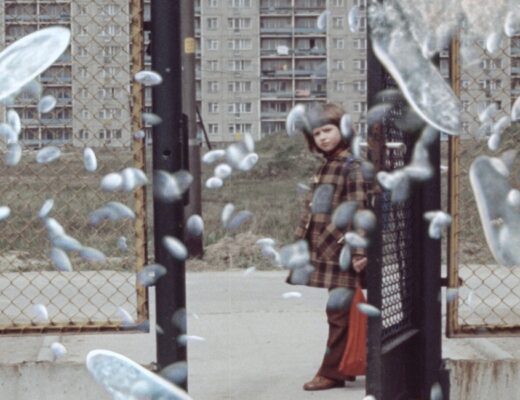Kiyoshi Kurosawa has mostly veered away from the kind of oblique horror films that made his international reputation back in the late 90s and early 2000s. But his influence lives on, as evidenced by last year’s Japan Cuts selection Red Snow and now again with Taku Tsuboi‘s Sacrifice (Tsuboi actually worked on Kurosawa’s Journey to the Shore when he was still a film student). Much like Kurosawa’s most famous genre entries, Sacrifice is less concerned with outright terror than a kind of abstracted, creeping dread, an unnerving sense of reality being just slightly off. Tsuboi uses the 2011 Tohoku earthquake as a kind of structuring fulcrum. College student Midori (Michiko Gomi) predicted the earthquake when she was a child and part of a bizarre doomsday cult along with her mother. Now an adult, her school’s campus is dealing with a series of cat mutilations and a dead female student, each having something to do with the upcoming anniversary of the quake. Midori’s classmates all appear to be outwardly normal, but each are hiding some unsavory aspect of their personality. Toko (Miki Handa) is friendly and demure, but becomes convinced that the quiet and studious Okita (Yuzu Aoki) is responsible for the feline killings. For his part, Okita quickly reveals that he’s capable of great violence, which he seems both fascinated by and attracted to. Further complicating things, some cult members reappear in Midori’s life, a few posing as students and attempting to bring her back into the fold.
Throughout all this, Tsuboi conjures an eerie atmosphere of unease, manipulating the material reality of the narrative by inserting flashbacks to Midori’s childhood, cryptic images of crashing ocean waves, and scenes that may or may not be manifestations of Midori’s psychic abilities. In addition, each murdered cat has been tagged with a number, gradually counting down to zero. What happens when the countdown ends is unclear, but apocalyptic implications abound. The ultimate reveal of the murderer is neither particularly surprising nor satisfying, but the film’s pleasures lie elsewhere. As a moody, evocative mediation on millennial ennui and encroaching doom, Sacrifice is unnervingly successful. Throughout the film, people refer to the Tohoku quake simply as 3/11, and much like 9/11 in the U.S., both events represent a line of demarcation, a before and after. This is societal trauma writ large, here manifested in a generation of damaged children forever haunted by the threat of it happening again.
Published as part of Japan Cuts 2020 | Dispatch 2.







